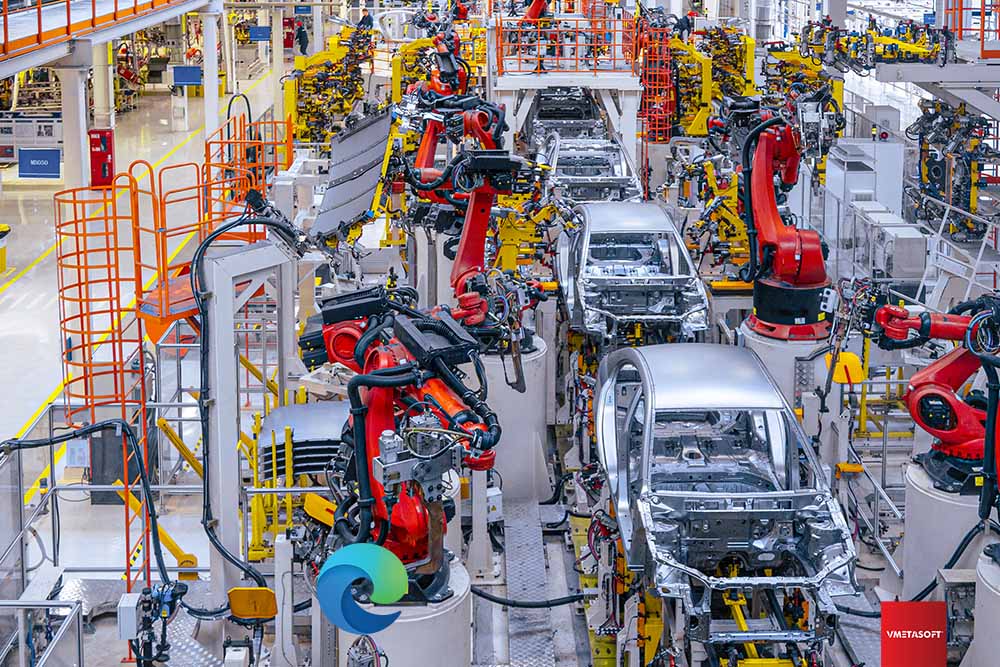How Smart manufacturing technology is transforming mass production?
In today’s fast-paced and highly competitive global marketplace, manufacturers are continually seeking innovative ways to improve efficiency, increase productivity, and deliver high-quality products to meet consumer demands. Enter smart manufacturing technology, a game-changing approach that is revolutionizing the mass production industry. This blog explores the transformative power of smart manufacturing and how it is reshaping the landscape of mass production.
Understanding Smart Manufacturing:
Smart manufacturing refers to the integration of advanced technologies, such as artificial intelligence (AI), the Internet of Things (IoT), big data analytics, and automation, to create intelligent, interconnected systems within manufacturing processes. This integration enables manufacturers to achieve higher levels of efficiency, productivity, flexibility, and cost-effectiveness.
Streamlined Operations with Industrial IoT:
The Industrial Internet of Things (IIoT) has emerged as a critical component of smart manufacturing. By connecting devices, machines, and systems, IIoT allows manufacturers to collect vast amounts of real-time data, fostering transparency and visibility across the production line. This data-driven approach enables predictive maintenance, reduces downtime, and optimizes overall equipment effectiveness (OEE).
Enhanced Efficiency through Automation:
Automation lies at the heart of smart manufacturing, enabling the seamless integration of machines, robotics, and human workers. By automating repetitive and mundane tasks, manufacturers can significantly increase production speed, reduce errors, and enhance quality control. This results in higher productivity levels and improved resource allocation, leading to overall operational efficiency gains.
Harnessing the Power of Artificial Intelligence:
Artificial intelligence plays a pivotal role in smart manufacturing by leveraging machine learning algorithms and data analytics to unlock actionable insights from vast amounts of production data. AI-powered systems can optimize production scheduling, detect anomalies, and enhance predictive maintenance strategies. Additionally, AI-driven quality control processes can identify defects more accurately, reducing waste and improving product quality.
Realizing Cost-Effectiveness:
Smart manufacturing technology offers substantial cost-saving opportunities. By automating processes and optimizing resource utilization, manufacturers can minimize labor costs, reduce energy consumption, and streamline supply chain logistics. Moreover, predictive maintenance and real-time monitoring of equipment can prevent costly breakdowns, minimize downtime, and extend machinery lifespan.
Accelerating Innovation and Customization:
Mass production has traditionally been associated with standardized products, limiting customization possibilities. However, smart manufacturing allows for greater flexibility and agility in production processes. With advanced technologies, manufacturers can swiftly adapt to changing market demands, reconfigure production lines, and introduce personalized or on-demand manufacturing. This facilitates faster innovation cycles and enables businesses to stay ahead of the competition.
Strengthening Sustainability Initiatives:
In an era of heightened environmental awareness, smart manufacturing is playing a pivotal role in promoting sustainability. By optimizing energy consumption, minimizing waste, and employing eco-friendly materials, manufacturers can reduce their environmental footprint. Additionally, data-driven insights enable continuous improvement and eco-design practices, leading to the development of more sustainable products and processes.
Conclusion:
Smart manufacturing technology represents a monumental leap forward in mass production. By harnessing the power of IoT, AI, automation, and data analytics, manufacturers can achieve unprecedented levels of efficiency, productivity, and cost-effectiveness. The integration of these technologies enables streamlined operations, enhanced quality control, faster innovation cycles, and greater customization possibilities. As the world moves towards Industry 4.0, embracing smart manufacturing is becoming a necessity for manufacturers seeking to thrive in an increasingly competitive global market.
Tags In
- Agriculture
- Artificial Intelligence
- Big Data
- Business Process Improvement
- Business Process Re-engineering
- Cloud Computing
- CRM software
- Cyber Security
- Data Mining
- Data science
- Data Storage Technology
- DataBase
- DevOps Environment
- Digital Transformation
- ERP Software
- Fraud Prevention
- How to Solve
- IoT: Internet of Things
- Java
- Logo Design
- Product Development
- Uncategorized
- Ux Design
- Virtual Reality Technology
- Web Development
- Work Culture
ANN artificial intelligence Artificial Neural Network asset management attack branding buisness buisness development buisness software buisness technology cloud computing CRM Software database data mining digital transformation ERP Software generative ai growth rate how to hr human capital management software hybrid iass India inventory management java progamming language logo design machine learning microsoft edge modernization mtbf mttr pass performance prevention private public ransomware red hat enterprise linux sass smart manufacturing soc SSD training and deployment unistall
Recent Comments
Thank You
Thank you Zen
Thank you Cerebrozen
Really a insightful bog
We really apprecite Vmetasoft affort, helping our brand with SOC. We are really proud to be partnered with Vmetasoft Inc.





